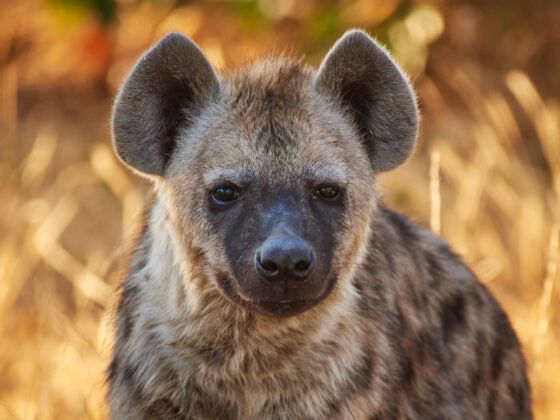I don’t harbor some kind of death wish, although such a desire might explain why I decided to feed a wild hyena from my mouth, placing my face within easy striking distance of one of the fiercest, most dangerous predators on Earth. With its incredibly powerful jaws, a hyena can even crush and digest elephant bones.
I traveled to Harar, Ethiopia, to meet Abbas Yusuf, better known as the “Hyena Man.” Abbas has been feeding the animals for 14 years, a tradition passed down to him by his father, who gave the hyenas pieces of meat to keep them away from his livestock.
